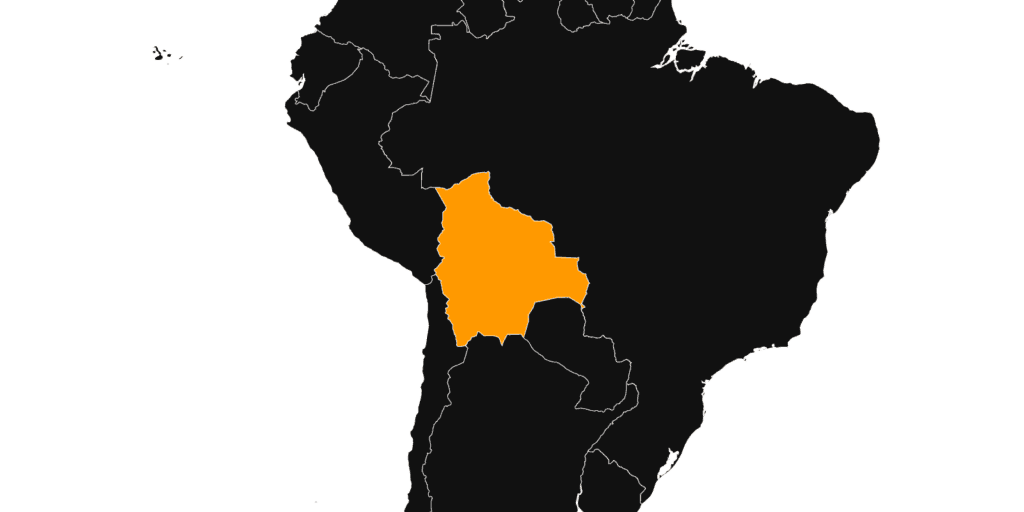
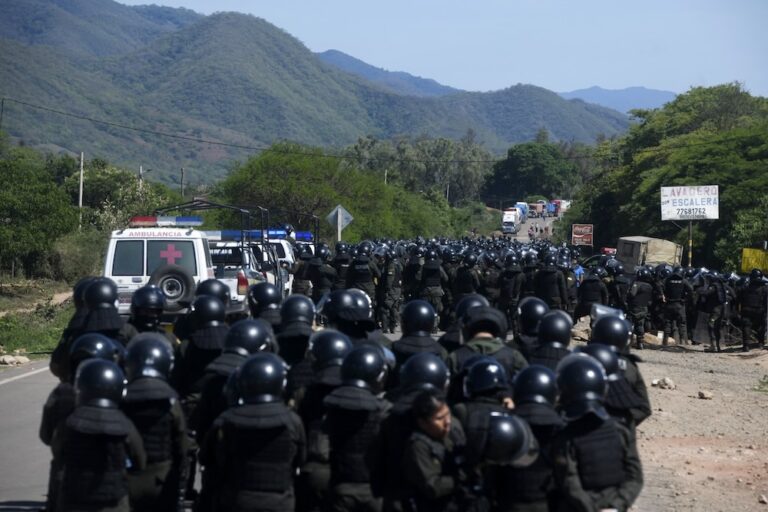
Bolivia: RSF denounces the violent attacks against at least 25 journalists covering mass protests
Tensions between Bolivia’s current president and his political rival have led to massive protests and road blockades.The ongoing unrest has resulted in an increase in violence against journalists covering the protests.

Bolivian protesters threaten to hang journalist Jurgen Guzmán
Protesters blocking a highway near the central Bolivian town of Melga threatened to hang Guzmán and briefly confiscated his crew’s TV camera.
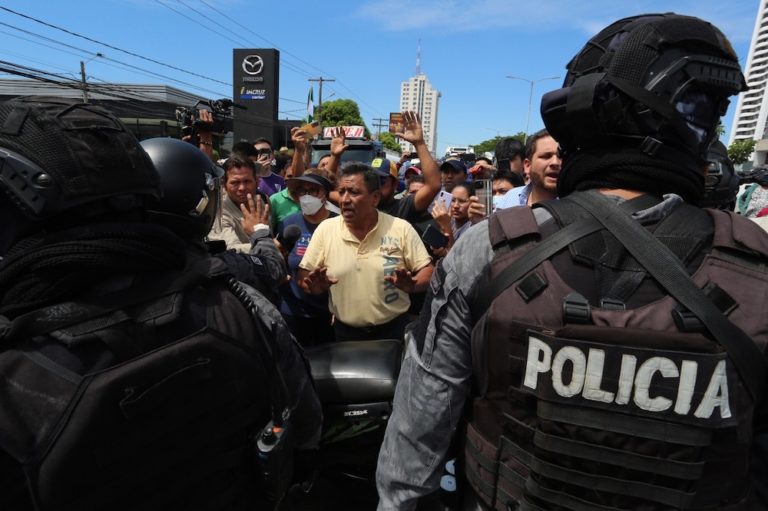
Inter American Press Association condemns violence against the press in Bolivia
Protests in support of the governor of Santa Cruz department and opposition leader, Luis Fernando Camacho, who has been remanded in custody since December 28, have been met with heavy police deployment and excessive violence. Numerous journalists were attacked.
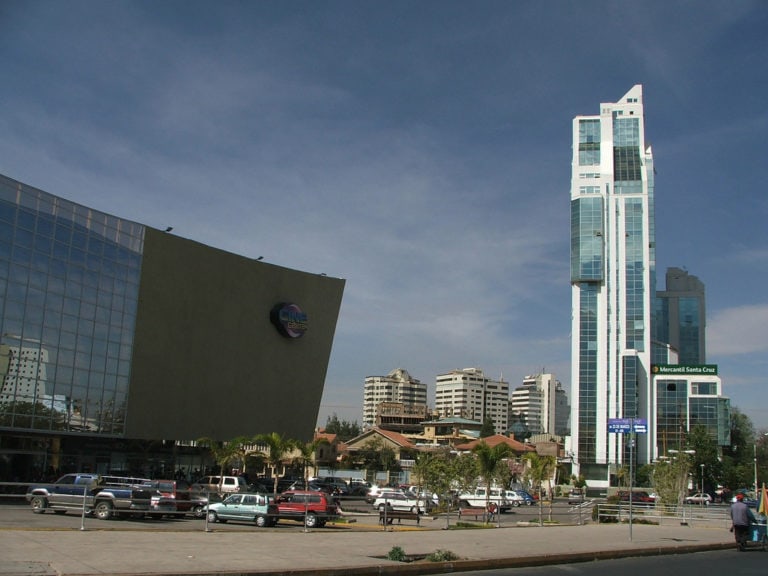
IFEX-ALC network calls on Bolivian government to protect the independent press and cease its financial pressure on Cochabamba newspaper Los Tiempos
The IFEX-ALC network urges the government of Bolivia to defend and guarantee freedom of expression and freedom of the press; and to refrain from using the state’s power to pressure or penalize media outlets, as is happening with the Cochabamba newspaper Los Tiempos.

Bolivian journalists abducted, assaulted by armed men while covering land dispute
Bolivian authorities must conduct a swift and thorough investigation into the abduction and assault of six journalists by a group of armed men and hold those responsible to account.
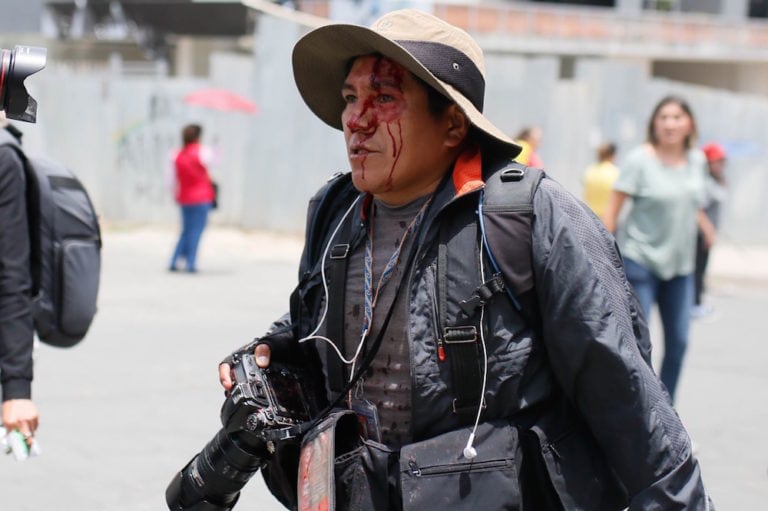
IFEX-ALC condemns attacks on journalists in Bolivia
The 24 member organisations of the IFEX-ALC network condemn the threats, harassment, attacks and censorship being perpetrated against media outlets and journalists in Bolivia within the context of the country’s current political crisis.
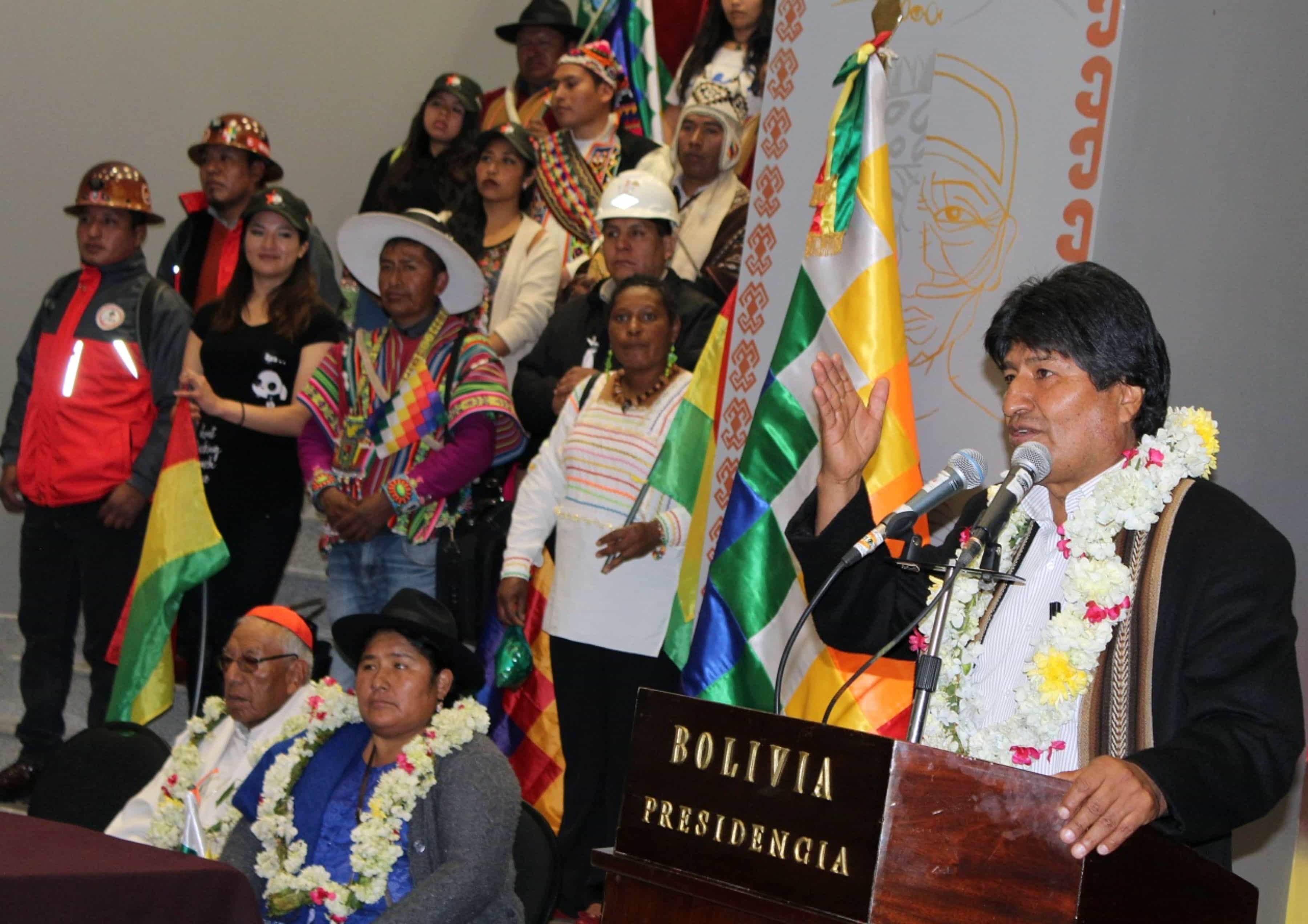
IFEX-ALC concerned over attacks, surveillance of press in Bolivia
IFEX-ALC calls on the Bolivian government to provide guarantees for the right to freedom of expression and to fulfill its obligations to investigate and bring to justice those responsible for actions against the press.
![Mecapaca valley, near the city of La Paz, 3 January 2015, Flickr/Pablo Andrés Rivero [Image has been cropped, shared under Attribution-NonCommercial-NoDerivs 2.0 Generic (CC BY-NC-ND 2.0)]](https://ifex.org/wp-content/uploads/2019/03/bolivia-mecapaca-valley-protest-flickr.jpg)
Radio journalist Agustín Aldo Mamani under house arrest after covering protest
“Filming a protest is not a crime,” said CPJ Deputy Executive Director Robert Mahoney. “Bolivian authorities should immediately release [radio journalist] Agustín Aldo Mamani from house arrest, and drop all charges against him.”

Editor still unable to return to Bolivia after six months in exile
The editor of the Sol de Pando newspaper and an outspoken editorial writer, Wilson García Mérida was summoned before a prosecutor on 10 May after being accused of sedition by presidency minister Juan Ramón Quintana for no valid reason.

Editor still unable to return to Bolivia after six months in exile
The editor of the Sol de Pando newspaper and an outspoken editorial writer, Wilson García Mérida was summoned before a prosecutor on 10 May after being accused of sedition by presidency minister Juan Ramón Quintana for no valid reason.

TV journalist in Bolivia faces defamation charges for discussing missing money
The Inter American Press Association has asked the Cochabamaba, Bolivia, Judiciary Council for transparency, due process and access to justice in the criminal case brought against journalist Marianela Montenegro on a charge of defamation.
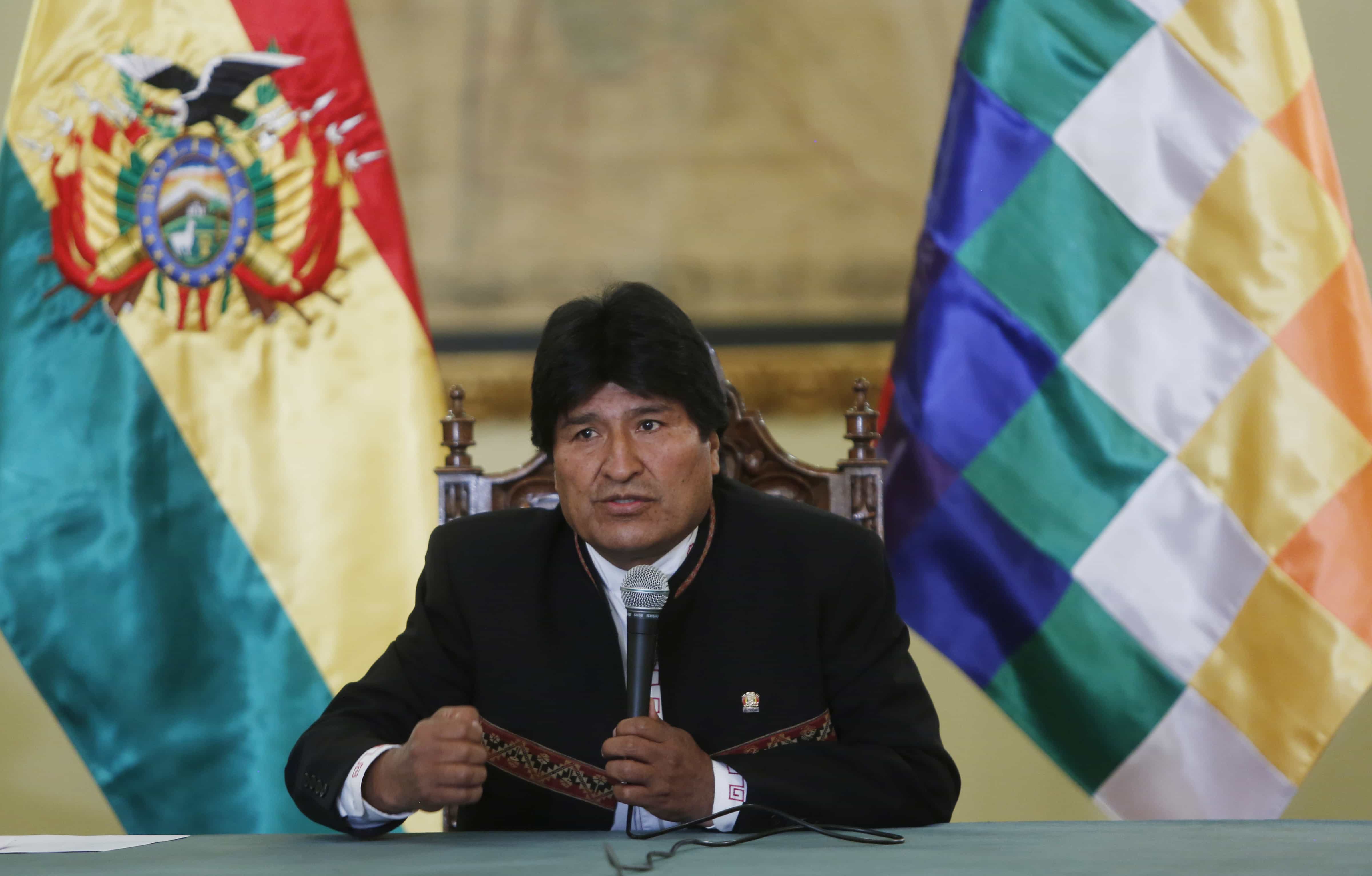
Bolivia’s president brings criminal libel suit against journalist
Journalist Humberto Vacaflor was charged after reporting that President Morales had been one of the masterminds of the murder of a police officer and his wife in 2000.

Mounting hostility towards media in Bolivia
Reporters Without Borders declares supports journalists hounded by the authorities in Bolivia and condemns the decline in the environment for media personnel since the start of the year, which has included public verbal attacks by officials, intimidation and prosecution threats.
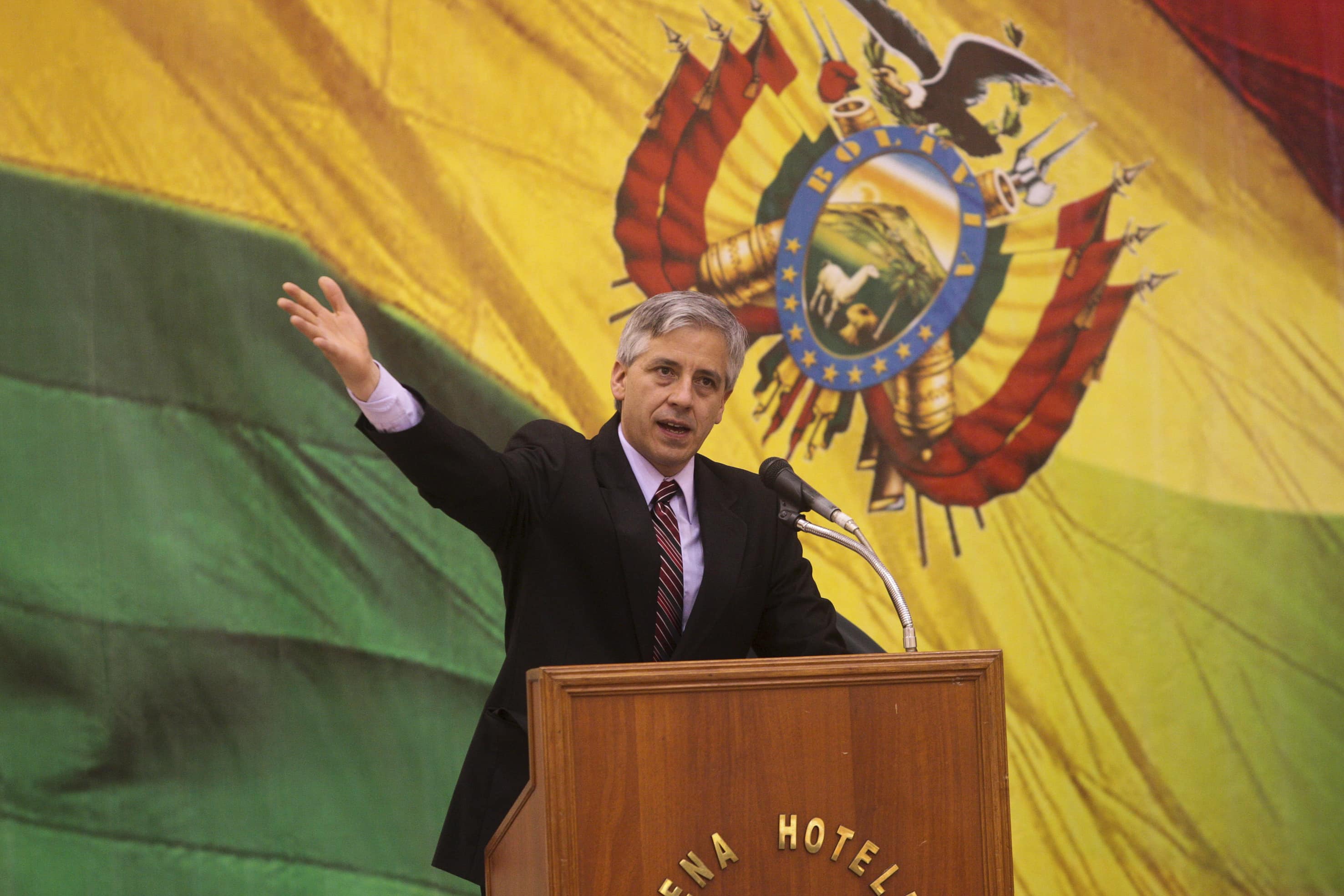
Bolivian media seeking state advertising must avoid “politicized” reporting
The government is acting under Supreme Decree 181, which has been in effect since 2009 and which allows the authorities to allocate state advertising as they see fit, without being subjected to any criteria.